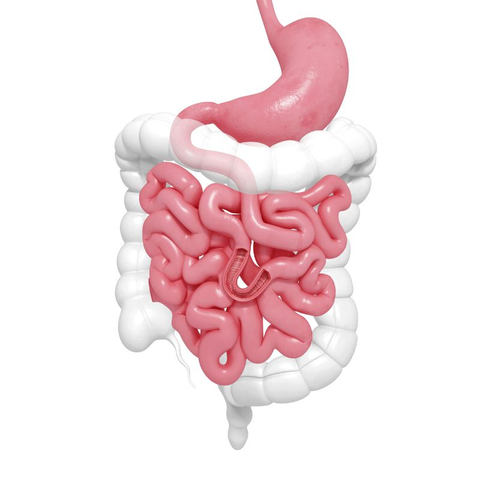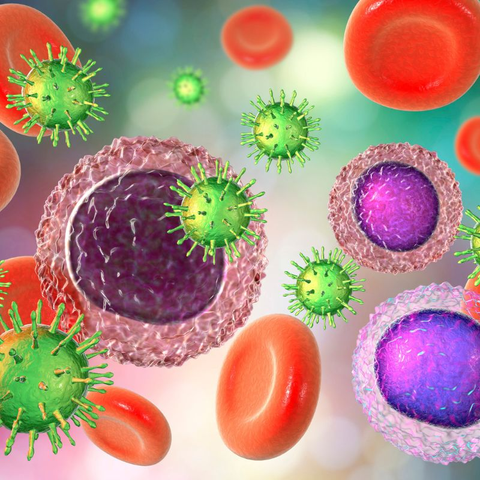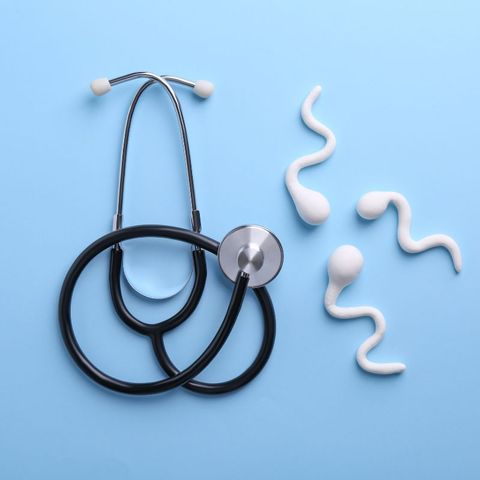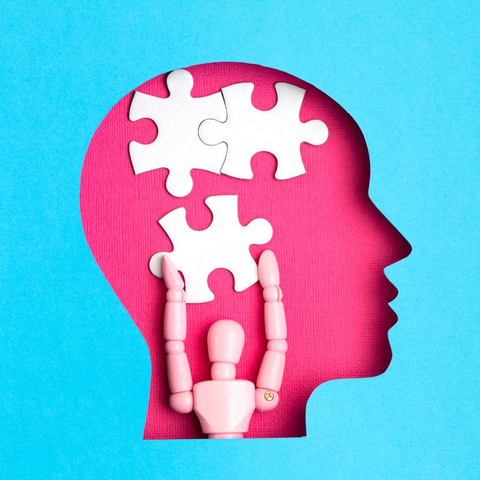

· By Lorea Lastiri
What Zinc Supplement is Best for You? Discover the Top Choices
There are many forms of zinc supplements on the market, including zinc gluconate, zinc acetate, zinc sulfate, and more. But which form is better for you?
The best zinc supplement for you is the one that is absorbed better, matches your dietary preferences, and contains no unnecessary fillers. Some forms of zinc are more bioavailable than others, making them more suitable to use as supplements.
Zinc is a powerhouse mineral that supports almost every function in your body, from immune health to DNA synthesis and hormonal balance.
A deficiency of this micronutrient can increase the risk of several chronic diseases, including cancer.
Taking zinc supplements can help prevent deficiencies and ensure the proper functioning of your body. However, choosing the right supplement is crucial.
That said, striking the right balance is the key.
This article will explore different types of zinc supplements and explain what makes some types of zinc better. We will also discuss how to use these supplements for the most benefit.
So, let’s get going!
What are the different forms of zinc supplements?

Several forms or salts of zinc are used as supplements. Some of the most common ones include:
Zinc gluconate
Zinc gluconate is one of the most popular zinc compounds used in supplements. It is economically priced, safe, and well absorbed by the body, making it the go-to choice for many supplement manufacturers.
Zinc gluconate is made by fermenting glucose, making it easy to manufacture as well. You will find this form of zinc in most over-the-counter supplements.
Zinc citrate
This form of zinc has a similar bioavailability as zinc gluconate but a slightly different taste profile, as it is derived from citric acid.
Due to its oral health benefits, it is also quite a common form of zinc, found in various supplements and other products, including mouthwash and toothpaste.
Zinc picolinate
According to several studies, this form of zinc is better absorbed than the gluconate or citrate forms we saw earlier. It is made by chemically bonding zinc with picolinic acid, making it easy for your intestines to absorb.
If you are zinc deficient, consider this form, as it can quickly improve your blood zinc levels.
Zinc oxide
Zinc oxide is an inorganic compound of zinc that is not as readily absorbed in your gastrointestinal tract as the other forms. However, it is still used in some oral supplements.
While it effectively blocks UVA and UVB rays when used topically in sunscreen, its utility in raising blood zinc levels is questionable. If you are deficient in zinc and want to improve your blood levels, it is best to avoid supplements in which most of the zinc comes from zinc oxide.
Zinc acetate
Zinc, in the form of its acetate salt, is found to be better at stimulating your immune system. It is often used in chewable tablets to reduce the severity and duration of the common cold.
Studies have also shown that acetate salt is more effective in delivering zinc to your body for antiviral purposes.
Zinc sulfate
This form of zinc is primarily used in supplements to improve acne and wound healing. That said, you should be cautious while taking supplements with zinc sulfate, as it can irritate your stomach.
Zinc orotate
In this form, zinc is bonded chemically to orotic acid to improve its bioavailability. Studies have shown that zinc orotate is better absorbed than other organic zinc derivatives.
Zinc carnosine
This form of zinc is the best for sensitive stomachs. It is touted for its gastroprotective properties and is commonly used to treat problems with gut health, including ulcers.
What is the best form of zinc supplement?
Each form of zinc we covered above has its benefits and potential drawbacks. The type of zinc supplement that is best for you depends on your health goals and potential sensitivities.
For instance, if you have digestive issues and get stomach upset quickly, it is better to go with zinc picolinate.
Always talk to your doctor before starting any supplement. They will be able to guide you in making an informed decision based on your health needs.
Always choose supplements from a reputed brand like WhyNotNatural. Our supplements are made from 100% natural ingredients, free from unnecessary and potentially harmful fillers. Check out our extensive range of vitamin and mineral supplements today!
How do you select the best zinc supplements?
It is essential to consider several factors when picking the best zinc supplements for your specific needs. Here are some of the most important things you should consider before zeroing in on a zinc supplement:
Health goals
Some forms of zinc are better at supporting different systems of your body. Zinc gluconate or acetate might be a better choice if you want to boost your immune system.
Zinc picolinate makes more sense for improving your skin thanks to its high bioavailability. Similarly, if you have gastric troubles, zinc carnosine might be a better option than other salts.
In short, it is essential to determine your health goal before picking a zinc supplement. Talking to a healthcare professional can be a great way to identify the health condition to target and, in turn, choose the correct form of zinc.
Bioavailability

A big issue with mineral supplements like zinc is that your intestine absorbs them less easily than other organic molecules like vitamins. Picking a supplement that will pass through your GIT unabsorbed is a waste of money.
In general, organic salts like zinc picolinate, zinc gluconate, and zinc citrate are better absorbed than their inorganic counterparts like zinc sulfate and oxide.
If you already have a deficiency and want to improve your serum zinc levels quickly, it is best to go with zinc picolinate or zinc gluconate.
Dietary interferences
One problem with supplementing minerals like zinc, which needs to be discussed more, is their effect on the absorption of other minerals. For instance, a high dose of zinc gluconate can inhibit the intestine from absorbing copper.
If you are taking other supplements or are concerned about specific dietary considerations, please talk to your doctor before picking a zinc supplement.
Supplement purity and quality
Dietary supplements often contain fillers and other additives that might be a risk to your health. You should always get supplements from a reputed manufacturer that adheres to good manufacturing practices (GMPs).
When purchasing a zinc supplement, check for any allergens, additives, and fillers you might want to avoid.
WhyNotNatural offers the highest-quality supplements manufactured under strict GMP regulations and containing natural ingredients. Our products never contain fillers or hidden ingredients.
What are the health benefits of zinc for the body?
Zinc is an essential micronutrient that participates in several metabolic reactions and impacts various organ systems in the body.
Elemental zinc is part of over 300 enzymes crucial for your body's proper functioning, from the immune system to DNA synthesis.
Here are some of the most important benefits of zinc that you should know:
Immune system support

Besides being a critical part of immunity, zinc can also help reduce the risk of some infections and help you recover faster. Zinc is required to develop and activate immune cells, such as neutrophils and natural killer cells.
It is an antioxidant and anti-inflammatory agent that lowers oxidative stress and avoids immune system overreaction.
Taking zinc also reduces the usual duration of the common cold symptoms. In addition, zinc deficiency has been associated with a weakened immune response.
Wound healing
Zinc is essential because it performs several functions related to the skin, including structural maintenance and integrity. It's a necessary stimulant of collagen synthesis, cell proliferation, and inflammatory response regulation, which are vital for healing wounds.
Research has indicated that zinc supplements can help speed up healing wounds. This property is particularly beneficial for individuals recovering from an operation or chronic wound conditions such as ulcers.
Metabolic function

Zinc activates the enzymes that control your metabolism. Enzymes involved in the digestion of nutrients, synthesis of proteins, and breakdown of carbohydrates and lipids contain zinc.
Zinc also affects the release of insulin from the pancreas. When the proper level of zinc is present in the body, blood glucose levels are in control, and sugar metabolism is better.
Reproductive health

Zinc appears to elevate fertility and male reproductive health. It affects the amount of male hormones and is essential in the development and maintenance of the male reproductive system. Zinc has been shown to be important in producing and keeping the quality of sperm.
Several peer-reviewed studies have also found that a zinc deficiency might lead to reduced fertility and a drop in testosterone levels in males.
Growth and development
Zinc is of great value for growth and development, and it is crucial, especially during the times of pregnancy, infancy, and childhood. It enriches cells, providing them with nutrients that are essential for the process of cell growth and division, which also has a huge impact on the proper development of the body.
Young children with zinc deficiency may experience stunted growth, delayed maturation, including sexual maturation, and a higher risk of developmental delays.
Cognitive function

This trace element also plays a crucial role in your brain's cognitive function. One of its primary functions is neurotransmitter activity, which greatly affects memory, mood, and vigilance.
Adequate zinc levels contribute to sharper cognitive faculties, and conversely, zinc deficiency might be one of the contributors to the development of mood disorders and cognitive decline.
Antioxidant and anti-inflammatory effects
Zinc functions as an antioxidant and might be linked to reducing oxidative stress in some chronic diseases, like heart disease, if used under a doctor's surveillance.
It does so by combating free radical damage. Its anti-inflammatory nature reduces inflammation and mitigates the risk of having inflammatory autoimmune diseases.
Zinc performs several crucial functions in the body, so it is essential that you have an adequate amount of this mineral. Supplementing zinc with the right supplement ensures that the zinc stores in your body are replenished, and you can avoid these deficiency issues.
Also read: 5 Top Vitamins for an Energy Boost: Essential Nutrients for Boosting Your Energy Levels.
What are the symptoms of zinc deficiency?
Developing zinc deficiency can have a massive impact on your overall health. The mineral plays a significant role in various body functions, and having less of it can impact the efficiency of these functions.
Identifying the deficiency symptoms early is essential so you can supplement with the correct form of zinc.
Here are a few zinc deficiency symptoms that you should keep an eye out for:
Impaired immune function
Poor immune function is the most visible marker of zinc deficiency. People with lower zinc levels tend to have a significantly higher chance of being sick longer and catching infections.
Zinc is responsible for this as it is the body's most essential micronutrient for boosting the immune system.
Without zinc, your white blood cells, particularly neutrophils, are unable to function correctly, making you susceptible to infections.
Wound healing delays
Zinc significantly enhances skin structure and speeds up cellular repair activities. Lack of zinc is often associated with slower wound healing after an injury or surgery, increasing the complication rate.
Skin and hair problems
Zinc deficiency can cause symptoms like dry skin, acne, and dermatitis. As zinc is involved in cell growth and healing, a deficiency results in delayed skin repair. Zinc deficiency also influences the hormones that are responsible for skin rejuvenation.
Changes in taste and smell
One of the most unusual symptoms of zinc deficiency is a change in your tasting and smelling ability. You might also experience a reduced appetite and lose weight. If you have experienced an unexplained weight loss, you should consult with your doctor to get your zinc levels checked.
Diarrhea
Chronic diarrhea is one of the most common symptoms of zinc deficiency, particularly among young children. As diarrhea hinders the further absorption of zinc from the intestines, it worsens symptoms.
Cognitive function impairment
Zinc plays a crucial role in brain health and cognitive function. Not having enough zinc has been known to cause children to face difficulties with concentration and memory, while in extreme cases, it may even cause mood disorders and learning disabilities.
Growth retardation
Zinc deficiency is one of the causes of developmental delays in children. These problems may lead to low growth rates, late onset of sexual maturity, and weight-related issues.
Fertility and reproductive issues
A deficiency of zinc can hinder your sexual health as well. Some of the most common sexual problems with zinc deficiency include reduced libido, low sperm counts, and other reproductive issues. Zinc is a critical factor in testosterone regulation, and a lack of this mineral causes your testosterone to dip.
Vision degradation
Zinc deficiency can also harm your vision and make you more susceptible to age-related macular degeneration. Zinc's antioxidant properties provide retina protection and maintain a healthy vision.
It is important to note at this point that most of these symptoms will develop gradually over long periods of time.
Catching these symptoms early and supplementing with zinc can help prevent and, in some cases, reverse these symptoms. Again, choosing the right form of zinc matters here.
If you experience any of these symptoms, talk to your doctor to determine if they are due to zinc deficiency.
Which group of people might need zinc?
While zinc is vital for everyone, irrespective of age or gender, certain groups are at a higher risk of developing deficiencies. You should consider getting supplements to prevent symptoms if you belong to these groups.
Here are some groups of people that are more susceptible to zinc deficiency and might need supplementation:
Pregnant and lactating women
Zinc plays a vital role in the development of the fetus. If an expecting mother is deficient in this essential nutrient, it may cause problems like low birth weight, premature birth, and an impaired immune system in the child.
Zinc is also crucial in the functioning of the mammary glands. Lactating mothers need enough zinc to produce sufficient quantity and quality breast milk. A deficiency during lactation can lead to a lack of milk production.
Infants and young children
Rapid growth and development in infants and preschoolers may result in an increased demand for zinc. As zinc is involved in proper growth, immune function, and cognitive development, young children need more of this micronutrient.
Elemental zinc shortage in this age group can cause poor growth, increased vulnerability to infections, and cognitive-based developmental issues.
Compared to formula-fed infants, those who are breastfed excessively, mainly if their respective mothers are zinc deficient, will require zinc supplements.
Vegetarians and vegans
Zinc is more readily obtained from animal products than from other plant sources. Vegans, who absolutely do not consume animal products, may need to consume more zinc, as plant-based zinc has especially low bioavailability.
Vegetarians also need zinc, though it is not at the same level. The presence of phytates in whole grains, legumes, seeds, and nuts can impede zinc's ability to bind and, hence, interfere with its absorption.
Including a high-quality zinc supplement can eliminate this problem and give you all the zinc you need.
The elderly
As you age, your ability to absorb zinc also decreases. You might not be able to meet the zinc requirement through diet alone, and supplementation might be necessary.
Older people may equally have other dietary constraints or health complications that reduce their total zinc intake.
Zinc supplements might benefit this age group as they also help improve the immune system and cognitive function.
People with gastrointestinal disorders

Gastrointestinal disorders like Crohn's disease and ulcerative colitis hinder zinc absorption and increase the rate of secretion, leading to a massive loss of zinc from the body through the digestive tract.
People at risk of having these conditions, including problems with zinc absorption or release, need an extra amount of zinc through supplements.
Individuals with alcohol dependence
Alcohol hinders zinc absorption and encourages its excretion through urine. The zinc deficiency, which stems from alcohol abuse, can be substantial and often requires proper zinc supplementation.
Athletes and physically active individuals
An athlete who replenishes zinc with foods rich in zinc, like meat, peanuts, and oysters, is likely to perform better than one who does not.
Long-distance runners and those with high physical demands require additional quantities of zinc to get nutritional support, enhance recovery and immune function, and maintain optimal performance levels.
How do I use zinc supplements?
Zinc supplements are available in different forms, such as tablets, capsules, liquids, and chewables. While it is important to know what form of zinc to supplement, it is equally important to know how to take these supplements.
Should I take zinc in the morning or at night?
The timing of your zinc supplement dictates how well it will be absorbed from your intestine. Zinc is most frequently taken once a day, either in the morning or at night.
However, it is also essential to consider your digestive convenience and zinc’s interaction with the components of the diet.
Some people may experience a stomach upset when taking zinc, especially those who have not eaten after taking it.
If you are also facing this issue, your doctor might advise you to take the supplement after your meals (lunch or dinner).
Furthermore, zinc competes with other minerals for absorption through the intestine. Minerals like iron or calcium might be absorbed less when you take zinc supplements.
If you are supplementing with these as well, it is best to stagger them by a few hours to avoid a potential interaction.
Can I take zinc daily?
Yes, zinc can be taken on a daily basis, and regular intake of some form of elemental zinc, like zinc citrate and zinc gluconate, will help keep your body’s stores at suitable levels.
While this may be true, following the prescribed zinc dosage is crucial to minimize possible undesired consequences.
Excessive supplemental zinc over prolonged intervals can result in toxicity and affect the extent to which other vital minerals are absorbed.
In addition, you should also consider every bit of zinc you take, whether through food or a supplement, so you don’t exceed the recommended daily allowance.
What is the recommended daily allowance of zinc?
The recommended daily allowance of zinc depends on your age, sex, and life stage. According to the National Institutes of Health (NIH), the general RDAs for zinc are as follows:
- Infants up to 6 months: 2 mg of zinc
- Children aged seven months to 3 years: 3 mg of zinc
- Children aged 4 to 8 years: 5 mg of zinc
- Children aged 9 to 13 years: 8 mg of zinc
- Males aged 14 and over: 11 mg of zinc
- Females aged 14 to 18: 9 mg of zinc
- Females aged 19 and over: 8 mg of zinc
- Pregnant and lactating women: 11-12 mg of zinc
These recommendations are indicative of the level of zinc intake that should satisfy the needs of the specific age group.
People with compromised digestive systems, recovering from disease, or with chronic ailments might need more or less zinc than the RDA.
Before starting any supplements, it is essential to talk to your doctor to determine whether you are deficient in zinc.
Whether you take your zinc supplements in the morning or at night, it is vital to ensure that you stay within the RDA values. It is essential not to over-supplement as it can have serious consequences.
Do zinc supplements have side effects?

While elemental zinc supplements help you prevent deficiencies and improve several aspects of your health, they can also have side effects.
It is equally important to note that these side effects are far less likely if you ensure that you are taking the correct dosage of the supplement and consulting with your doctor before starting them.
Here are some more common side effects associated with zinc supplementation:
Gastrointestinal issues
Gastrointestinal discomfort is among the most common complications noticed when zinc supplements are used. Symptoms may include nausea, vomiting, and loose stools with the presence of abdominal cramping.
You are more likely to see these effects if you take zinc supplements like zinc acetate or zinc sulfate on an empty stomach.
Zinc taken with food and low starting doses can reduce gastrointestinal effects. The dosage can be gradually increased as the body gets used to it.
Metallic taste and smell alterations
Zinc may sometimes induce a temporary metallic taste sensation in the mouth or alter the smell sensation among individuals.
However, this effect is temporary, and as your body adjusts to the supplements, these symptoms will go away. If the symptoms persist, you should contact your doctor.
Immune system suppression
It is a well-known fact that zinc strengthens the immune system, but excessive intake does the opposite. It can worsen immune responses.
Excessive amounts of supplemental zinc can disturb the functions of immune cells, bacteria-killing activity, and inflammatory response. This can lower your immune system's ability to tackle pathogens, diseases, and other infections.
Interference with medication absorption
Zinc may interact with certain drugs to cause the intestinal uptake of the drugs to be delayed or diminished. For example, zinc inhibits the absorption of an antibiotic called tetracycline and an anti-malarial called quinolone.
In addition, zinc can impair the blood levels of penicillamine, which is used to treat rheumatoid arthritis. The dosage of these medications might need adjustment if you are already taking zinc supplements.
Mineral imbalance
Overdosage of zinc may result in an imbalance in other minerals, such as copper, iron, and magnesium. Zinc significantly impedes the absorption of these minerals in the gut and is a neutral competitor of these elements.
Most of these side effects result from overconsuming zinc supplements. However, if you stay within the recommended dosage and address any issues early on, you can develop a safe zinc supplementation regimen with several benefits.
Are there health risks associated with excessive zinc?
Like any nutrient, too much zinc intake is bad for your health. If you consume zinc beyond the recommended dosage, you might experience specific chronic adverse effects, such as:
Acute toxicity
It can occur if you consume too much zinc in the form of supplements, especially in the form of easily absorbable ones like zinc picolinate.
The symptoms include gastrointestinal discomforts, such as nausea, vomiting, watery diarrhea, and abdominal pain. Consuming excess zinc can also lead to dizziness and balance issues in the short term.
Chronic overdoses
Overdoses of zinc disturb the mineral balance of your body. Zinc is a competitor for copper absorption, and when you consume it in excess, it blocks copper from getting absorbed, leading to a copper deficiency.
It may result in anemia, neutropenia, and a depressed immune system.
Long-term high zinc
Excess zinc intake for a long time affects the absorption of iron and magnesium, both of which are crucial for the proper functioning of your body. Some studies have also found that a prolonged excess intake of zinc may increase the risk of prostate cancer.
So, while zinc is important for your health, you should avoid excess of this mineral. It is important to stay within the RDA allowances and talk to a doctor if you experience any of these symptoms.
Also read: Does Magnesium Contribute to Weight Gain? Unravel the Truth for Better Health Management.
Does zinc interact with other medications?
Zinc can interact with certain medications, affecting their absorption and efficacy. When taken together with certain antibiotics like tetracyclines and fluoroquinolones, zinc chemically binds to them and retards their absorption.
Similarly, zinc also reduces the effectiveness of penicillamine, a widespread arthritis medication.
If you are taking zinc supplements along with these drugs, you should stagger their intake by at least 3-4 hours to avoid any potential interaction.
Can multivitamins and zinc be taken together?
Most multivitamin supplements already contain zinc, so taking them together is safe and recommendable. While the dose of zinc in most multivitamins is relatively low, you should ensure you don't exceed the RDA values.
Can vitamin C and zinc be taken together?
Vitamin C and zinc are safe combinations that boost immunity. When taken in combination with vitamin C, zinc’s antioxidant effects are amplified, leading to a host of health benefits.
Some evidence also suggests that vitamin C might increase the absorption of zinc from the intestine, creating a synergistic effect.
Can vitamin B and zinc be taken together?
You can take vitamin B and zinc together without experiencing any adverse effects. Zinc does not interact with the B vitamins or affect their absorption.
In fact, vitamin B6, a component of the B-complex vitamins, may help the metabolism of zinc in the body. However, it is still important to ensure that you consume a moderate amount of zinc every day.
Can zinc and Omega-3 be taken together?
Zinc has no known interaction with omega-3 fatty acids; you can take them together without issues. Both nutrients offer you distinct health benefits that work by totally different mechanisms.
What vitamins should not be taken with zinc?
None of the vitamins interact with zinc; you can take them together. However, certain minerals should not be combined with zinc.
For instance, zinc competes with copper for absorption and might lead to copper deficiency if both supplements are taken together.
A similar interaction between iron and zinc is also known to exist, leading to less iron absorption when taken together with zinc supplements.
If you are taking copper, zinc, and iron supplements, it is best to space them out throughout the day to avoid the potential interaction.
What foods are rich sources of zinc?
Several dietary sources of zinc provide a high-quality, easily absorbable form. Including these foods more often in your diet ensures that you get enough zinc to avoid deficiencies.
Some of the richest sources of zinc include:
Shellfish
Shellfish are a great source of zinc. Oysters, in fact, have more zinc than any other food. Other shellfish like crabs, lobsters, and mussels are also rich in zinc.
The best part is that the type of zinc present in these animals is easy to absorb from your intestines, making them the best source of bioavailable zinc.
Red meat
Red meat, especially beef and pork, is rich in zinc. Make sure you choose lean cuts like chuck or sirloin to get the most zinc. Like with shellfish, the zinc in meat is readily bioavailable, making it a great choice to increase zinc levels.
Poultry
Poultry products like eggs and meat are also rich in zinc. Both turkey and chicken offer excellent amounts of zinc, with the dark meat containing slightly more amount than white meat.
Both the yolk and egg whites contain a substantial quantity of bioavailable zinc.
Legumes
If you are a vegetarian or a vegan, you can rely on legumes like chickpeas, lentils, and beans for zinc. Include black beans, kidney beans, and chickpeas (garbanzo beans) in your diet to get your daily RDA of zinc.
Nuts and seeds
Pumpkin seeds, also known as pepitas, are one of the best plant-based sources of zinc. Other nuts and seeds like cashews, almonds, and hemp seeds also contain notable amounts.
Dairy products
Milk products are another great way to get your daily zinc quota. While milk does contain some zinc, yogurt has more zinc per serving than milk. You can even find yogurt fortified with zinc in your local supermarket.
Whole grains
Apart from providing dietary fiber, whole grains like wheat, rice, and oats contain a substantial amount of zinc. However, the zinc in these grains is slightly more difficult to absorb due to the presence of phytates that can inhibit zinc absorption.
Fortified foods
Food products like breakfast cereals, fortified with nutrients, contain high amounts of certain minerals, such as calcium, iron, and zinc.
However, these foods are highly processed and might include a difficult-to-absorb form of zinc. So, make sure the fortified food you are getting contains the right types of zinc and in the correct amount.
Chocolate
Dark chocolate, which contains a high percentage of cocoa, is also a good source of zinc. While the amount of zinc is not as high as some other foods on this list, it can provide you with modest amounts of easily absorbable zinc.
Vegetables
While vegetables generally contain less zinc compared to animal-based sources, some are still notable contributors. Spinach, kale, and mushrooms contain small amounts of zinc.
Fruits
Fruits like avocados and berries contain trace amounts of zinc, contributing to overall intake when consumed regularly.
Note: Adding a variety of these foods enables you to reach the required zinc dietary allowance. However, some aspects you should take into account can influence zinc absorption.
Nonheme iron contained within legumes and grains is bound with phytates, which significantly affect their ability to absorb zinc ions. Correspondingly, excessive intake of some minerals, including calcium, hinders the absorption of zinc.
To maximize zinc, eat zinc-rich foods with those rich in vitamin C, as this can help increase zinc absorption. Similarly, how foods are cooked plays a part in their zinc content. Boiling, steaming, and baking generally do not compromise the zinc content as frying does.
Although zinc deficiency is considered a rare condition in developed countries, there are people of certain groups who are more prone to this condition, such as vegetarians and vegans who lack the regular intake of zinc, older adults, and pregnant and breastfeeding women.
Relying on a dietary intake of zinc, especially for these groups of people, may not be enough. If you fall under one of these groups, talk to your doctor about zinc supplementation.
Takeaway: Choose the zinc supplement that is right for you
Zinc supplements offer numerous beneficial effects, from boosting the immune system to improving wound healing. While zinc can be obtained from dietary sources, certain groups may need additional supplementation.
Always consider your personal needs and preferences when purchasing zinc supplements. While different types of zinc supplements are available, the most suitable option is the one that gives you the best bioavailability with the fewest side effects.
You should also avoid excessive zinc consumption, which can lead to several potential adverse effects.
It is always best to talk to your doctor before starting any supplements. Equally important is that your supplement is pure, safe, and manufactured using GMP standards.
If you are looking for some of the best 100% natural vitamin and mineral supplements made with zero fillers, check out WhyNotNatural.
We offer the highest-quality, easily absorbable supplements made using the highest industry standards. Shop our extensive collection today!
Don't forget to subscribe to our newsletter to learn which supplements to take, how to combine them for maximum benefit, and other health tips to boost your energy and vitality. Plus, discover natural strategies to reduce hormonal imbalances, stress, and anxiety. Click here to get started!

